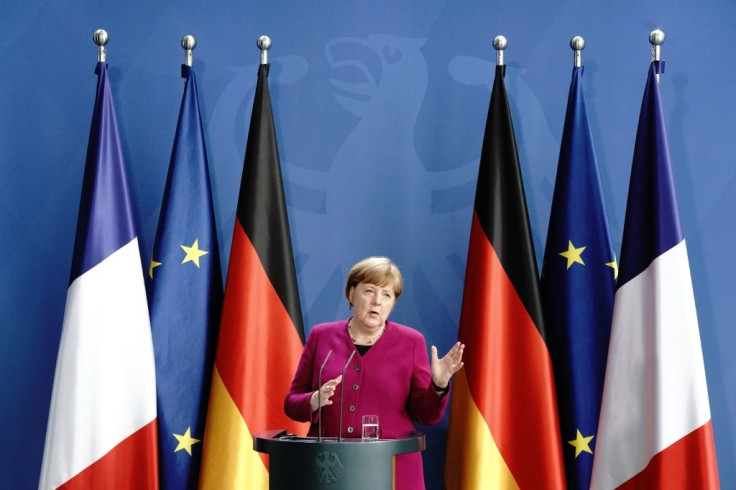How Is Europe's Economy During Coronavirus? What German Chancellor Angela Merkel Said About Economic Fate Of EU

As the coronavirus pandemic continues to weaken European Union economies, German Chancellor Angela Merkel said Thursday that European solidarity is more important than ever.
“The pandemic shows us how vulnerable Europe is,” Merkel told the German parliament. “Therefore I want to stress to you that cohesion and solidarity in Europe were never as important as they are today.”
“The medical and economic consequences of the crisis are deepening the imbalances in the European community,” Merkel continued. “We must not allow the economic prospects of the EU member states to drift apart as a result of the pandemic.”
EU leaders are expected to meet in July to discuss a financial rescue package.
In May, France and Germany introduced a 500 billion euro ($549 billion) recovery fund that would distribute grants to regions and industries most impacted by the virus. Later that same month, the European Commission proposed a 750 billion euro ($838 billion) recovery fund. The fund would include 500 billion euros ($560 million) in grants in line with the Franco-German plan, but also additional support for high-debt countries such as Spain and Italy.
Netherlands, Denmark, Austria and Sweden have been reportedly concerned about the plan, as the leaders of those countries feel it is unfair to foot the bill for heavily indebted Mediterranean nations.
During the first quarter of the year, Europe’s largest economy, Germany, contracted by 2.2% amid the coronavirus crisis, while French GDP declined by 5.8% in that period. Italy shrank by 4.7% in the first three months of the year, with Spain’s GDP falling by 5.2% during that time.
In April, consulting firm McKinsey warned that 60 million jobs across the EU and the U.K. are at risk from the pandemic.
© Copyright IBTimes 2025. All rights reserved.





















